Billy Beane Quotes


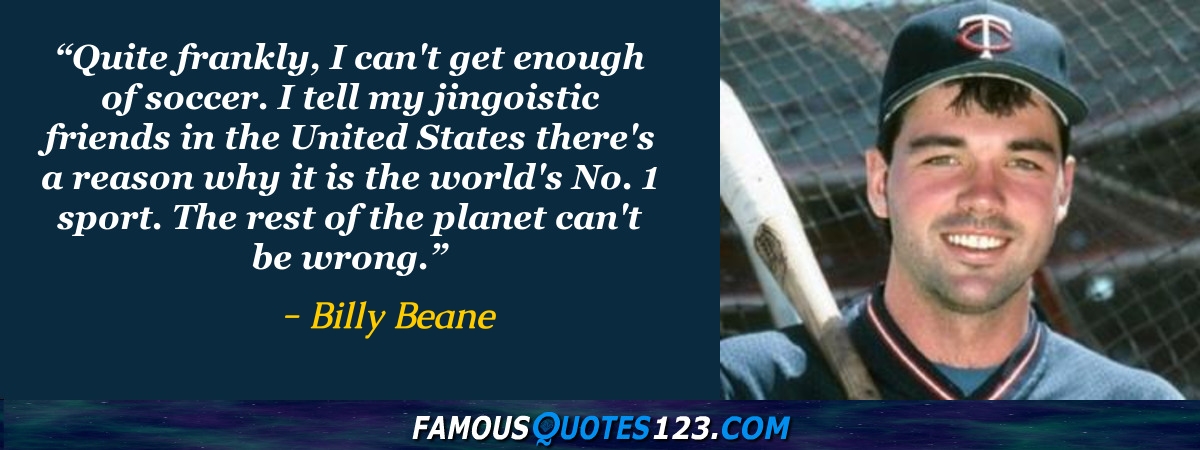
Quite frankly, I can't get enough of soccer. I tell my jingoistic friends in the United States there's a reason why it is the world's No. 1 sport. The rest of the planet can't be wrong.
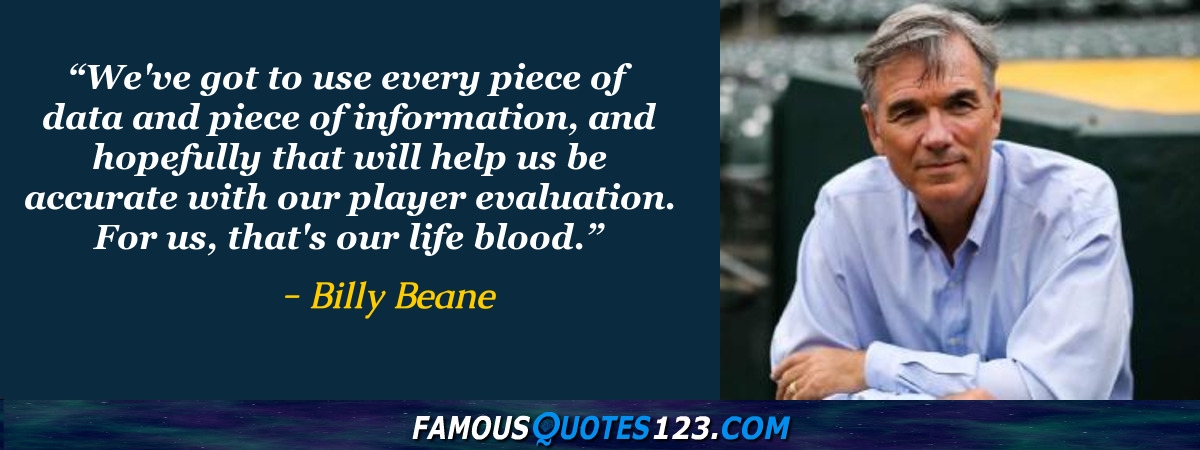
We've got to use every piece of data and piece of information, and hopefully that will help us be accurate with our player evaluation. For us, that's our life blood.
The math works. Over the course of a season, there's some predictability to baseball. When you play 162 games, you eliminate a lot of random outcomes. There's so much data that you can predict: individual players' performances and also the odds that certain strategies will pay off.
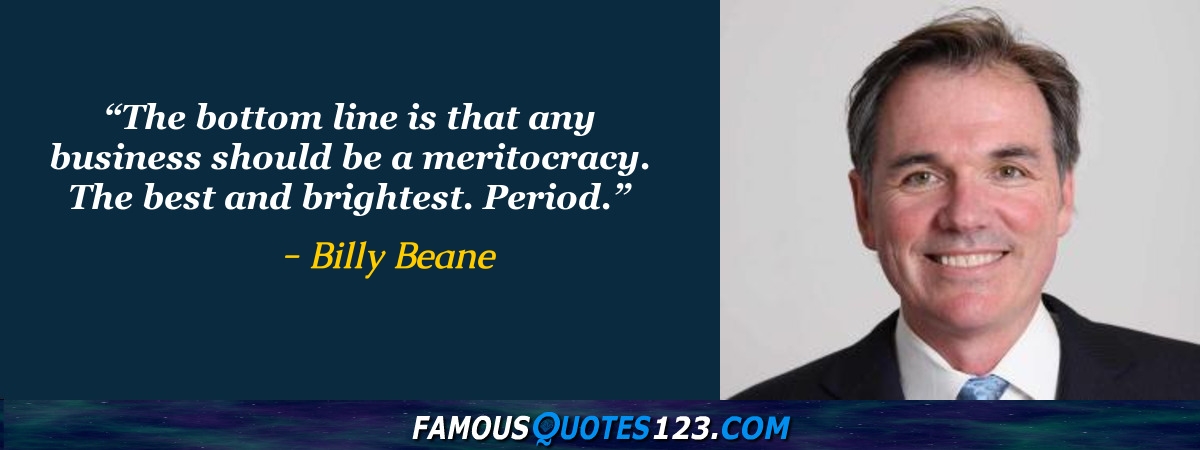
The bottom line is that any business should be a meritocracy. The best and brightest. Period.
We try to create a situation where we're the casino. It's like how an actuary would set insurance rates. Predictability, predictability, predictability. What's the path to least risk? What's the greater chance of getting some return on this asset?
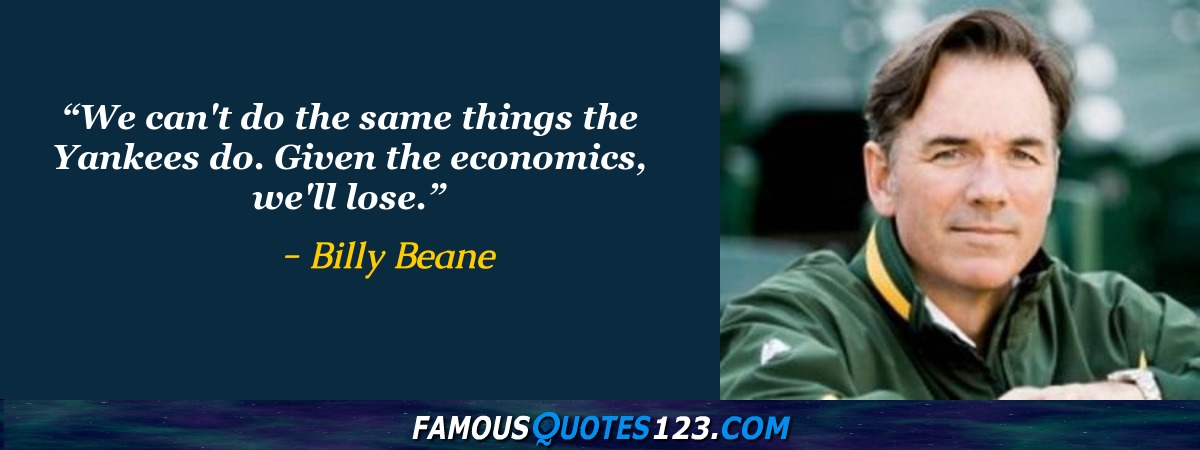
We can't do the same things the Yankees do. Given the economics, we'll lose.
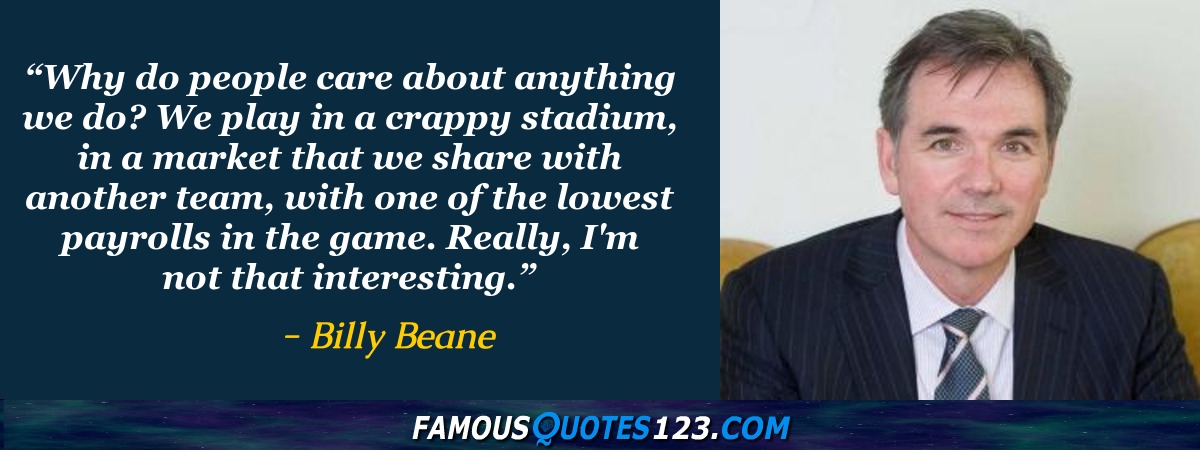
Why do people care about anything we do? We play in a crappy stadium, in a market that we share with another team, with one of the lowest payrolls in the game. Really, I'm not that interesting.
In baseball, you can do something poorly and still get credit. A pitcher could throw a bad ball, the batter hit a screaming line drive, and an outfielder make a fantastic diving catch. Yet, when you look at historical databases, 80% of the time when a ball is struck with that trajectory and velocity, it is a hit.
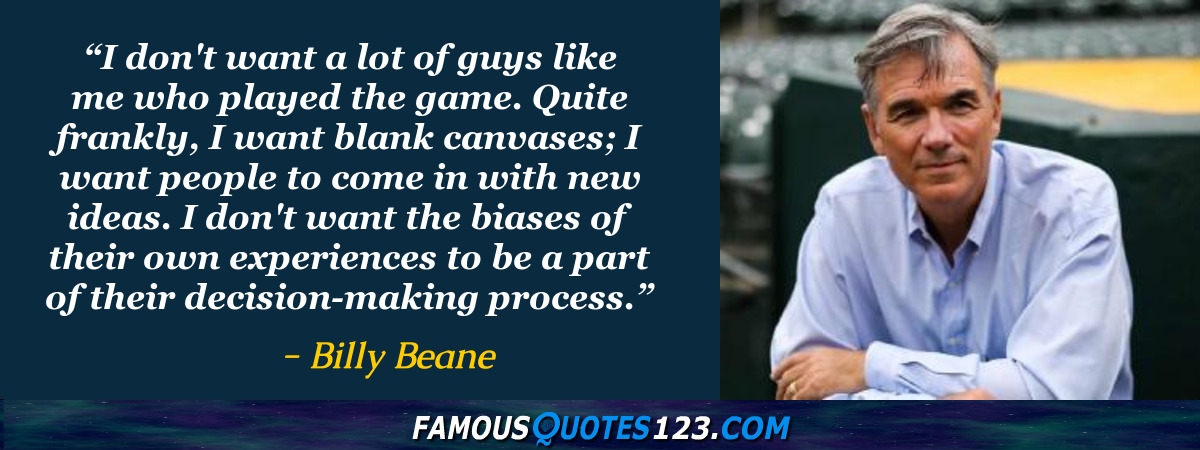
I don't want a lot of guys like me who played the game. Quite frankly, I want blank canvases; I want people to come in with new ideas. I don't want the biases of their own experiences to be a part of their decision-making process.
The idea that you can create a template that will work forever doesn't happen in any business. There's some really, really bright people in this business. You can't do the same thing the same way and be successful for a long period of time.
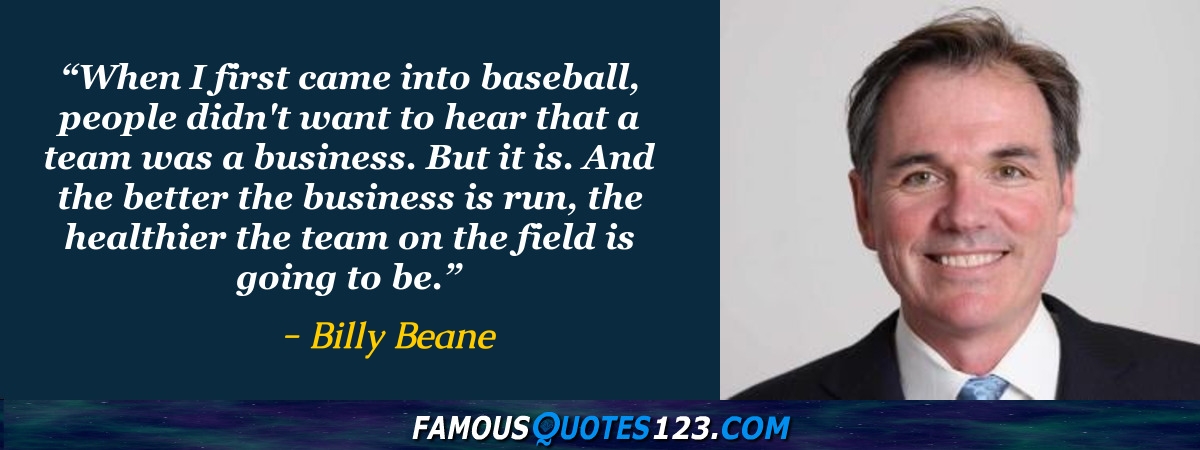
When I first came into baseball, people didn't want to hear that a team was a business. But it is. And the better the business is run, the healthier the team on the field is going to be.
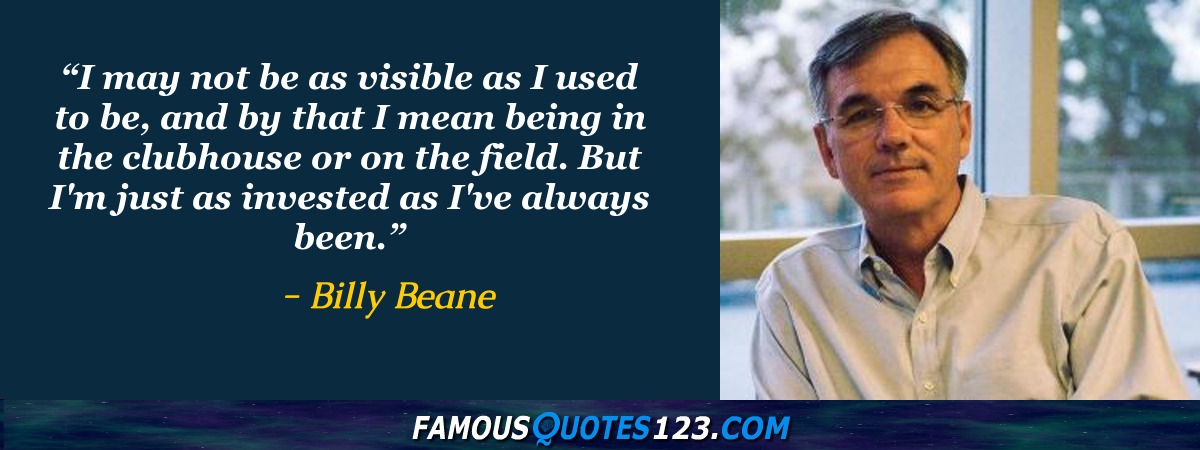
I may not be as visible as I used to be, and by that I mean being in the clubhouse or on the field. But I'm just as invested as I've always been.
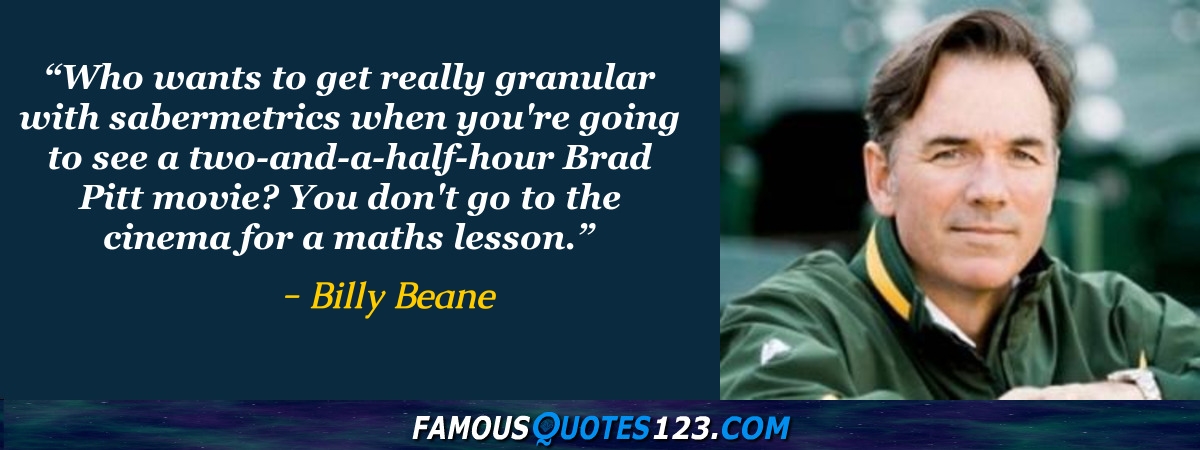
Who wants to get really granular with sabermetrics when you're going to see a two-and-a-half-hour Brad Pitt movie? You don't go to the cinema for a maths lesson.
I hate this idea that I've somehow become detached. It's like I can't win. I'd been hearing all these years that I was too hands-on: that I was the guy writing out the lineup card. Now, I'm not present enough. How is it possible to be a detached micromanager?
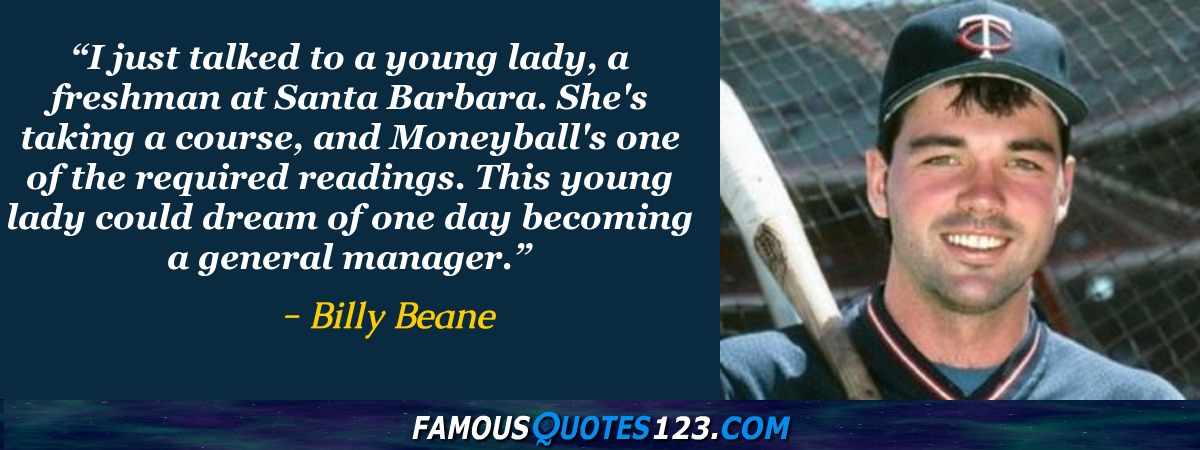
I just talked to a young lady, a freshman at Santa Barbara. She's taking a course, and Moneyball's one of the required readings. This young lady could dream of one day becoming a general manager.
I've always been intellectually restless, but it is the building part of it that most interests me. It is the constructing of the team that is my favorite part. Anyone who is familiar with the history of the A's franchise, even dating back to Philadelphia, knows that every five or 10 years, you have to tear it apart and rebuild it.
Trying to build a team over the course of the winter to put on the field is really just half the job. Because if your best players go down, it's not so much him going down as who you replace him with, which ultimately might have the biggest impact on how you end up finishing. So you want to have both a belt and suspenders for support.
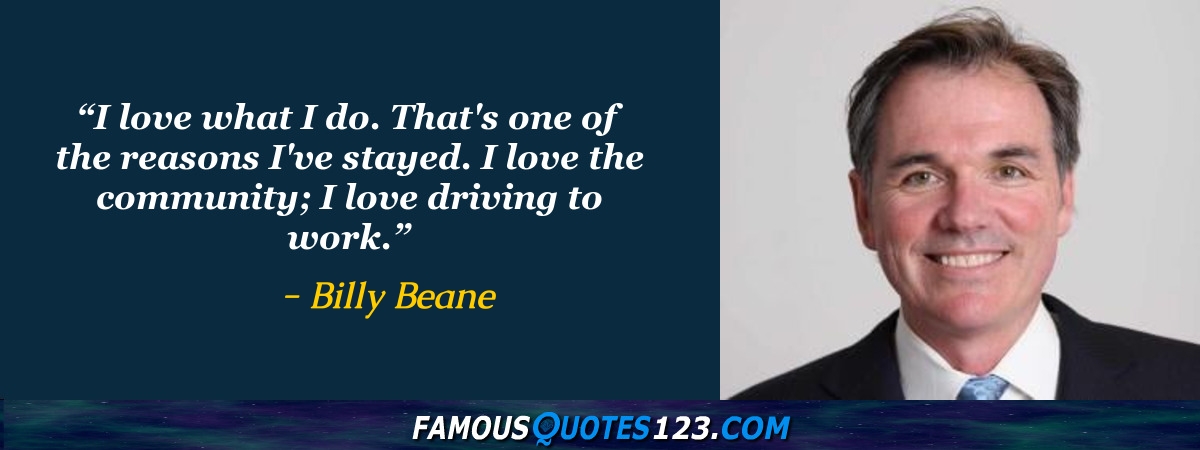
I love what I do. That's one of the reasons I've stayed. I love the community; I love driving to work.
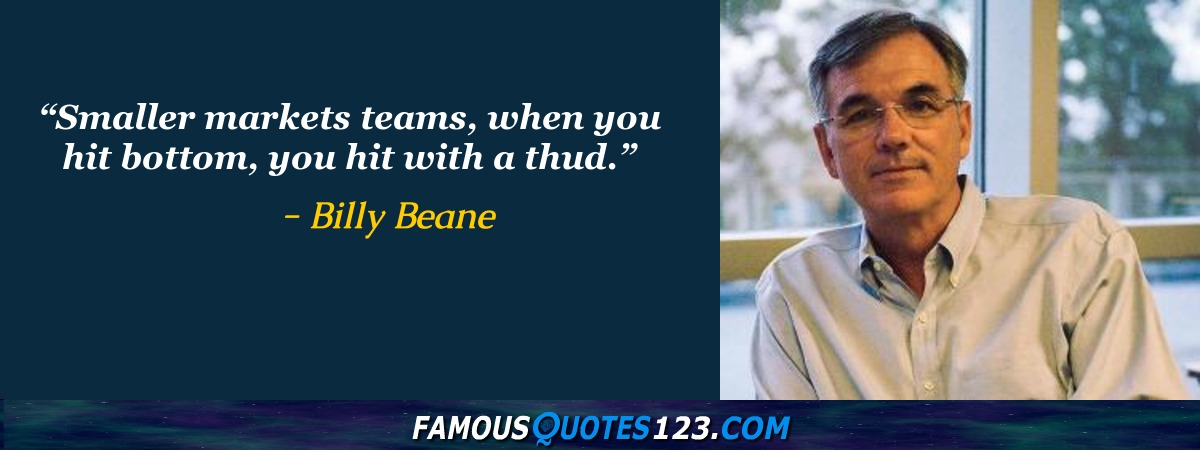
Smaller markets teams, when you hit bottom, you hit with a thud.